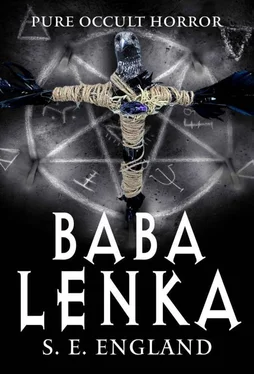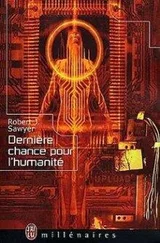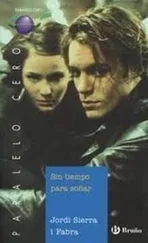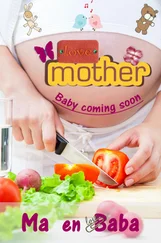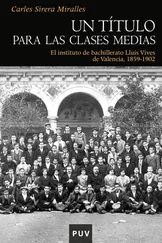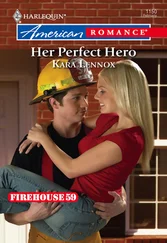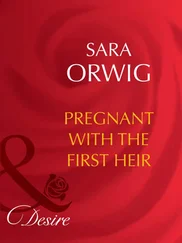On Saturday afternoons Earl and Maud watched the wrestling, both of them yelling and shaking balled fists at the set. Eva was to sit quietly and do a jigsaw or get on with the knitting Maud had set her. And on Sundays after church, Earl would go to the pub and Maud would put on a big Sunday dinner.
“You peel them spuds, Eva, love,” she said that first Sunday. The day I found out who or what my grandad really was.
It was all right doing that; I didn’t mind. The scullery was cold, and my fingers were numb, but I learned quickly, peeling and chopping while the rain pummelled the corrugated iron roof and Grandma Hart smoked and whisked up batter for the Yorkshire pudding. On the stove, carrots and cabbage simmered, steaming up the windows until they ran with condensation, and a joint of beef roasted in the oven.
She seemed agitated, though, constantly watching the clock. And I wondered why.
I never had to wonder again.
At ‘chucking-out time’, which was two o’clock, Grandad Hart rolled in through the kitchen door, smashed it back with his elbow and stumbled in. His nose was purple with veins, eyes glassy and unfocused, and the stink of him fair sent you reeling. The smell was new to me, like a jar of pickled onions. He lurched from table to doorway and into the living room, knocked something over and swore loudly. “Why the fuck did yer put that there? Yer stupid cow! I’m hungry. Where’s the bloody dinner, woman?”
Grandma Hart’s hands were shaking. Stubbing out her cigarette, she finished mashing the potatoes and quickly drained the cabbage. “Coming! Two minutes, love.”
He banged the table with his fist, his voice thick and syrupy. “For fuck’s sake, what’s tha been bloody doing all bloody morning? Fannying about? Gossiping?”
Hell, he was coming back to the kitchen.
She’d been cooking ever since we’d returned from church. Why was she letting him speak to her like this? He seemed like a different man.
“It’s nearly ready,” she trilled in a light, jovial tone belying the grim look on her face. “Go and sit down. I’m just serving up.” Then, turning to me, she hissed, “Hurry up, get them carrots on to t’ plates, Eva.”
The scullery was as steamy as a chip shop. Frantically she stirred gravy with one hand while taking out of the oven the Yorkshire pudding she’d made with onions in a tin.
“Cut him a slice of that and take it in. Hurry up.”
I put the plate in front of him, and he wolfed it down.
The atmosphere was charged like a bomb was about to go off. Gran served the lunch in silence, and then we tentatively joined him and sat down.
“Where’s the bleedin’ salt? I’m looking for salt, woman! For crying out fucking loud!”
She was the colour of cigarette ash, her great bulk shifting at speed to get the carton of salt.
Noticing my wide eyes, she slightly shook her head. Don’t say a word!
It wasn’t until after he had eaten, though, just before dessert was served, that he finally spoke to her properly. “Right bloody kickoff in t’ pub this lunchtime, Maud.”
She was clearing the plates away. “Oh, aye?”
On mine she had only put a small piece of beef and a tiny spoonful of mash with two carrot pieces. No gravy. She glanced at the lump of gristle I’d cut away and pushed to one side, pursing her lips, before immediately checking whether Grandad had noticed. Hopefully, she’d slip it into the bin and he wouldn’t force me to chew and swallow it.
The purple veins on his nose were darkening to maroon. A rant was coming. “It were Bobby Waller who started it – telling us who’ve worked down t’ pit for twenty year we should accept what’s on t’ table.”
“You mean, for t’ redundancy package?”
“Course I flaming do. What the hell did you think I meant?”
“Sorry, love, I—”
He banged his fist on the table so hard the crockery juddered. “I won’t bloody ’ave it. I will not have that bloody upstart telling me, Earl Hart, what to accept and what not to accept, do you bloody ’ear me?”
“I should think not. I hope you told him—”
The conversation rapidly moved on to one I did not understand, but it seemed to revolve around pits being closed due to not being profitable and people being cast aside onto the poverty heap without getting paid properly. And I don’t know why I said it. I don’t. I should have kept quiet.
But out it popped anyway, in a sing-song know-it-all voice, during a lull. “Well, sometimes it’s best to go along with things to keep the peace.”
I don’t know where I’d heard that line before. Maybe it was from my dad. In fact, I’m sure it was something he used to say when my mother lost her temper.
But the hands of time stopped. The bomb had been detonated.
Both my grandparents turned to stare with open mouths.
A good minute seemed to pass before Grandma Hart’s head swivelled oh so slowly on its stem, in the direction of Grandad Hart. Who was standing up. His fists were clenched on the table. His chair fell back with a thud.
What happened next was fast as a hurricane. He lunged forwards, picked me up by the elbow, and cracked me hard across the face. I don’t recall the words. Only the blast of stars as his iron fist smashed into my eight-year-old skull like a wrecking ball.
The incident was never acknowledged or referred to. It didn’t happen.
Earl Hart simply retrieved his chair, sat down again, and began to eat steamed jam pudding with custard. Globs of gloopy yellow clung to his stubbly chin as methodically he chewed and swallowed. And afterwards, he poured tea from his cup into a saucer and noisily slurped it down.
One of them must have lifted me onto the sofa, because I woke to the sound of Gardener’s World . Tears burned my eyes, the left one so swollen that the sight was temporarily lost. The salty taste of blood trickled down my throat, along with the sensation my head was enlarging on one side, the pressure causing a dull, sickly ache.
“You mustn’t speak to him when he gets like that, love,” said Grandma Hart when she tucked me up later. “It’s only when he’s been to t’ pub. He’s all right most o’ t’ time.”
How was it possible to survive this? When would Mum and Dad come back? How could they have left me here? How could they? Did they know what my grandad was like when he’d been to the pub?
Choking back the sobs, the pillow wet with tears, Lenka’s glittering world pulled me down once more, and willingly I dropped into it, longing for the story to resume. If this was madness, it was preferable to reality. And perhaps insanity would have won out had life continued like that with Earl and Maud, but have you ever noticed how something or someone turns up during the darkest of days? That even during the unhappiest of times, there is a chink of light – just enough to keep you going? Perhaps there is a God? That would depend on who orchestrates the whole, and what do we know?
For me, anyway, that someone was Nicky. She got me through.
Nicky Dixon was the girl who lived next door but one. The same age as me, she was walking up the street with a satchel slung over her shoulder when I first spied her. Her head was down, shoulders stooped.
I was kneeling on the storage chest in the hall, watching the kids walk home from school.
“She looks sad,” I said.
“The dark girl? The others call her names; I’ve heard them,” said Grandma Hart.
“Why?”
“Because she’s different, I suppose. You know what kids are like.”
“Yeah, but why? It’s mean.”
She stroked my hair, one of the few soft gestures she ever made. “I don’t rightly know, love. It’s just how it is wi’ kids. They can be ’orrible sometimes.”
Читать дальше
